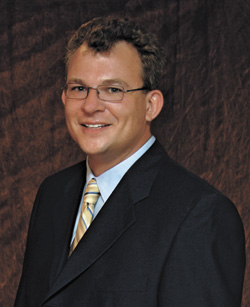No matter your age, taking care of your teeth and gums is important. However, if you’re a senior citizen (age 65 or older), paying close attention to your oral health is even more important than it was before. After all, your oral hygiene can greatly affect other parts of your body and your overall health, and age can leave you more prone to some of these issues. Below, Flintlock Dental will examine dental care for seniors, so you can keep on top of your oral health as you get older.
Most Common Dental Issues for Seniors
Before we look at ways to maintain good oral hygiene as we get older, let’s take a look at some of the most common types of dental problems that arise more often in seniors:
- Darkened Teeth – Tooth discoloration can be caused by changes in dentin (the soft inner part of the tooth) as a person ages, as well as damage caused by a smoking or drinking habit. Depending on the cause, a teeth whitening option may help with this problem.
- Dry Mouth – There are many causes of dry mouth, including dehydration, breathing with your mouth open, smoking, and a side effect of certain medications. No matter the cause, this condition can result in annoying issues such as bad breath, sore throat, and increased tooth decay. If you suffer from persistent dry mouth, consult with your dentist to root out possible causes and discuss treatment options.
- Halitosis – Commonly known as bad breath, halitosis is an embarrassing issue that has several potential causes. If you’re driving people away with your breath, it might be because of your medication, an underlying medical condition, or your eating habits. Your dentist can help you solve this problem once and for all.
- Tooth Decay – Alongside the normal wear and tear that inevitably damages your teeth over the years, it’s very common to experience tooth decay on one or more of your teeth as you get older. This is an issue with diet and the microbes living in your mouth. There might even be a genetic component working against you. Since tooth decay can get out of hand quickly, it’s important to go to your regular dental exams and continue to take care of your teeth as time goes on.
- Loss of Teeth – The loss of teeth could be due to gum disease, dental trauma, or other issues. If you’ve lost any teeth, speak with your dentist about treatment options for replacing any missing teeth and preventing further losses.
Stay Hydrated
When it comes to dental care for seniors, it’s important to stay hydrated. Not only will this habit keep you healthier overall, but your teeth will stay healthier too. Staying well hydrated helps combat dry mouth, which is uncomfortable and will exacerbate other dental problems. Proper hydration will also help you fight other oral issues, such as gum disease and chronic bad breath.
Remember as you reach for something to drink that almost all beverages besides plain water can damage your teeth due to the sugar content and acidity. Limit your intake of sugary/acidic drinks such as soft drinks and juice. For many people, it’s impossible to stop this habit completely, but there are ways to reduce the damage. If you find yourself drinking sugary drinks all day, try your best to cut down on the habit by substituting flavored water. Start by just swapping out one drink per day and then increase the habit from there. Drink your sugary beverages at mealtimes and follow it up with water afterward. When it comes to oral health, it’s better to consume tooth-damaging foods and beverages all at once instead of spreading them out throughout the day. Your teeth and the rest of your body will thank you later for this simple (but difficult) change!
Dental Implants
If you’re missing any teeth, it’s important to talk with your dentist about getting dental implants to replace them. There are a few good reasons why you should look into replacing your teeth instead of leaving the gaps empty:
- Difficulty Eating Foods – When you’re missing teeth, some foods are much more difficult, or even impossible, to eat. Well-made, properly installed dental implants provide the same anchoring effect as your actual teeth, making it easier to eat just about anything without fear of your dentures falling out.
- Sunken Face – Your teeth help provide the structure of your face, along with your jaw. If you have one or more missing teeth, it can start to affect the look of your face overall. Having dental implants installed immediately will help restore the structure to your face.
- Lack of Confidence – Do you find yourself hiding your smile now that you’ve lost a few teeth? Modern dental implants can look just like real teeth and let you rebuild that confidence.
Brush and Floss
As you get older, you need to continue brushing and flossing your teeth (or get started immediately if you’ve been slacking!) Throughout your lifetime, it’s important to brush twice and floss once daily. If you suffer from sensitive teeth, you can ask your dentist about switching to prescription toothpaste. Though it’s not as necessary, you might also look into using mouthwash. When it comes to oral hygiene, always follow your dentist’s recommendations for your particular situation.
If you’re a senior citizen and have become remiss in your dental care, the best time to make an appointment to see your dentist is right now. Taking the effort to care for your teeth and gums will save you money, time, and pain in the future. Your oral care is even more important now than it was when you were younger, as dental issues have a nasty habit of turning into worse problems down the line. Taking care of your overall health includes paying close attention to your oral health!
